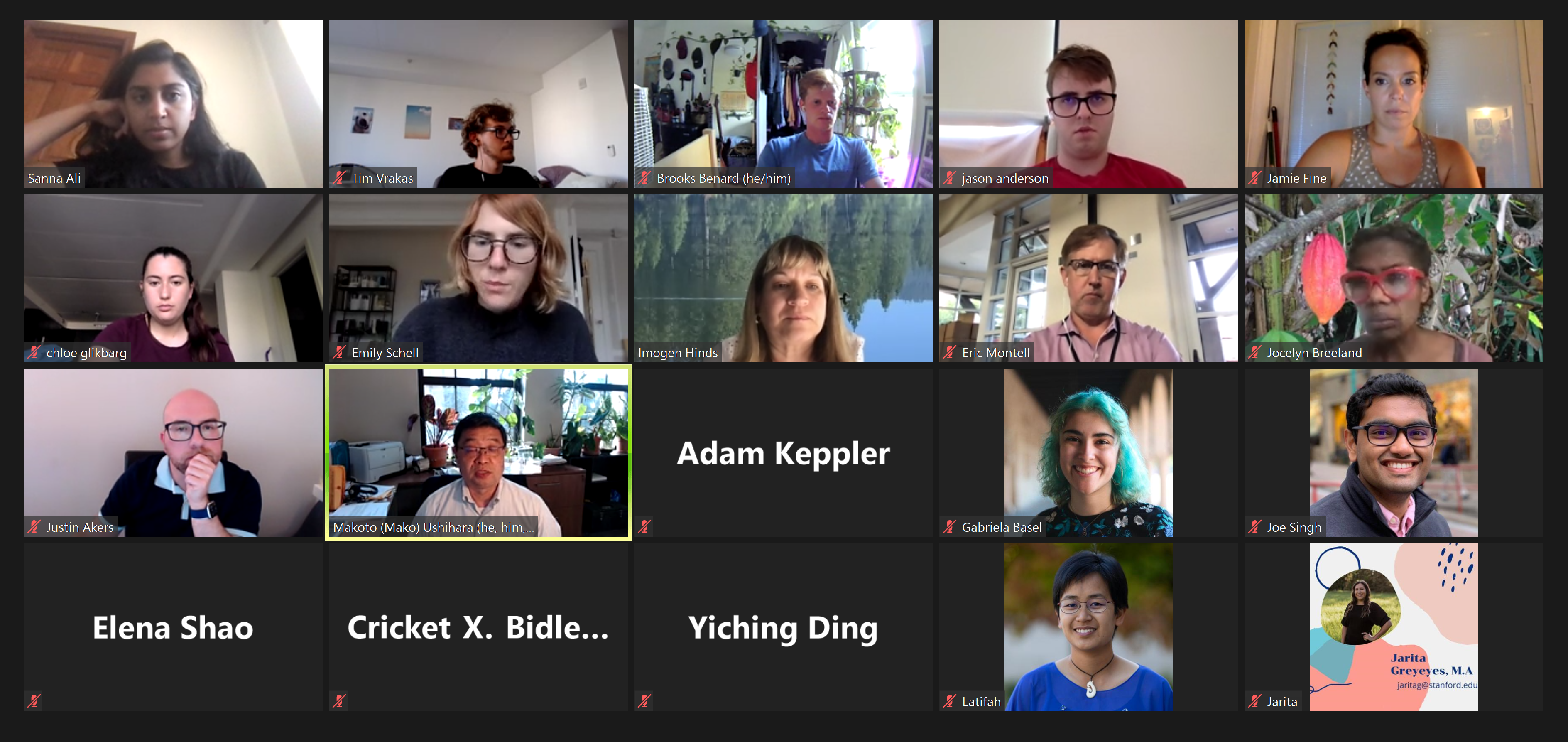The Graduate Student Council (GSC) laid the groundwork to push for a slate of graduate student goals, ranging from affordable housing to accessible healthcare at the Council’s Wednesday meeting. The Council, which has previously advocated for similar issues, is now searching for a clearer path to change founded in past GSC and University survey results and objectives.
Though the GSC has used its status as a legislative body of the Associated Students of Stanford University (ASSU) to pass resolutions that push for affordability and accessibility, significant progress can be hard to come by.
The link between Council advocates and University decision-makers comes in the form of meetings between the two and regular discussions between councilors and Residential & Dining Enterprises representatives. Leverage for graduate student advocates, however, is sometimes the missing piece to the puzzle in this relationship.
Councilor Emily Schell M.A. ’18, a third-year developmental and psychological sciences Ph.D. student and member of the GSC Diversity and Advocacy Committee (DAC), pointed to the University of California system as a paragon for graduate students gaining advocacy power within their institutions.
In 2019, the University of California, Berkeley, launched a basic needs center that works toward achieving stable housing, healthcare, mental wellness and financial sustainability for students, staff and faculty. While an objective like that may be years away, Schell said, it is an example of how a university was able to incorporate the needs and perspectives of community members into its policies.
“Even though we’re not a public institution, our grad students still come from a much wider swath of socioeconomic backgrounds than our undergrads,” Schell said. “So I imagine there will be a need for it. And frankly, if there’s a political will, Stanford has the resources to do something like this.”
But councilor Jason Anderson said that he is worried students at Stanford are not as united as the advocates within the UC system. The second-year aeronautics and astronautics Ph.D. student who earned his undergraduate degree at UC Berkeley noted that Berkeley’s Basic Needs Center may have been the product of an environment of organized student advocacy that is not present at Stanford. Graduate student workers within the UC system are unionized and have used collective bargaining to reach university administrators in the past.
“Given the engagement that we have with the students currently, I don’t see collective bargaining as a feasible option for the Stanford community,” Anderson said. “And I think that that’s probably the only thing that would actually secure these benefits considering the resistance that we’ve had.”
That’s why the DAC plans to back its advocacy efforts with data collected by the GSC and the University, said councilor Gabriela Basel, a second-year chemical engineering Ph.D. student. In 2018, the GSC finished synthesizing a survey of the graduate student population’s needs and priorities.
“What we’re trying to do is phase one, put together the data to show that this is something that’s needed, and then phase two is to actually make it happen,” Basel said.
According to Schell, however, little action followed from the University, which cited the survey’s low participation rate of 19%. The DAC plans to use the findings from that report in conjunction with the results of the University’s IDEAL survey, which focuses “on how race and ethnicity shape the experiences of our community members at Stanford” and an upcoming Santa Clara County audit of the University’s public services to build a powerful case for the University to start effecting change.
“Stanford basically shut off accountability for any of the recommendations so we were like, let’s start with the recommendations and findings of that report, let’s look at Stanford’s other reports: the Affordability Task Force, the IDEAL survey, let’s see if those Stanford-sanctioned surveys have findings to corroborate the findings,” Schell said.
The GSC also heard preliminary versions of changes that the Committee of 10, a group of students and faculty members working to revise the University’s judicial processes, will be making to the Stanford Honor Code. The GSC plans to vote on these changes at its next meeting in three weeks. If the changes to the Honor Code and Fundamental Standard pass both ASSU legislative bodies, it will be sent to the Faculty Senate before it reaches the Board of Judicial Affairs and finally the President’s office.
